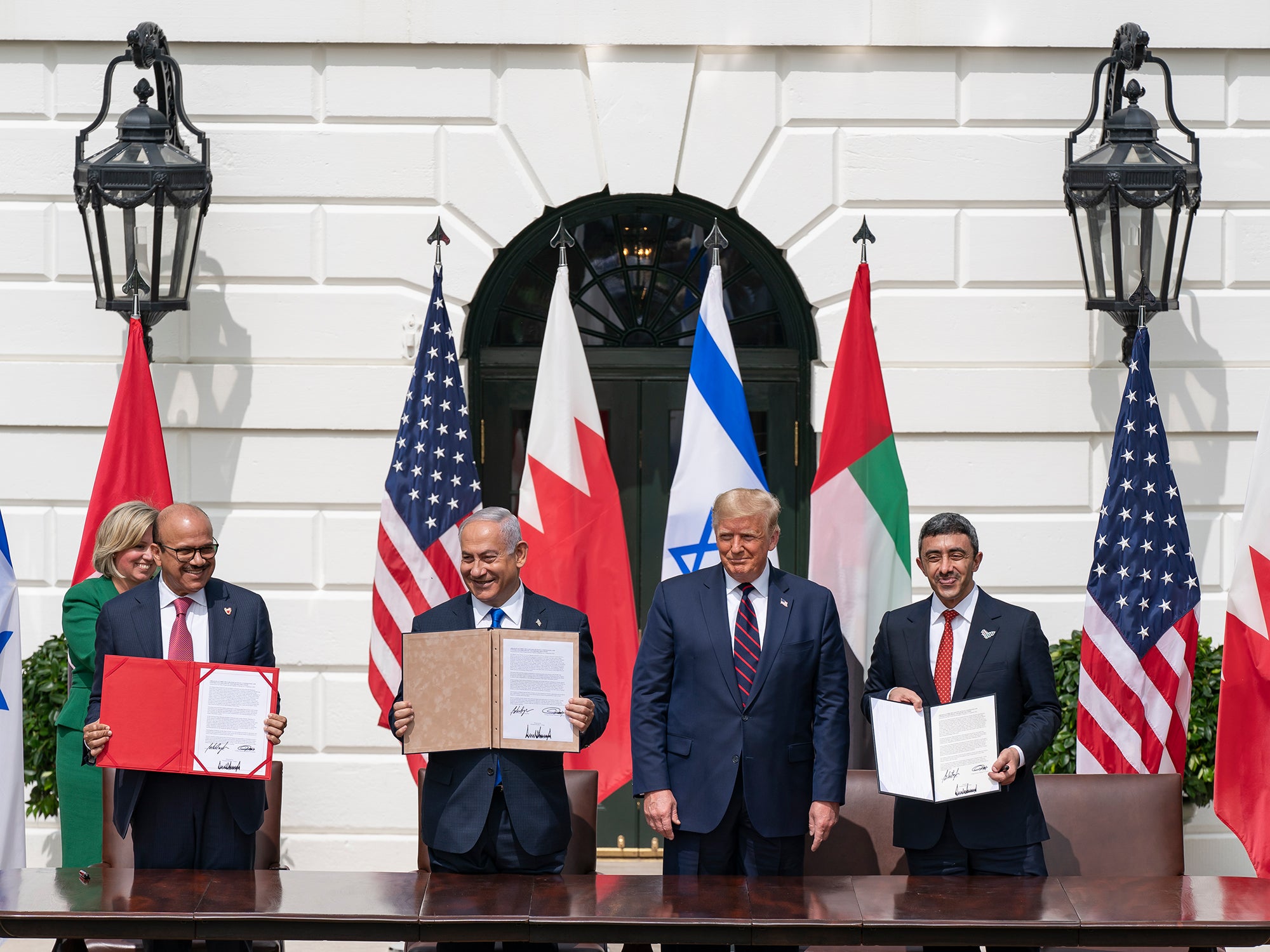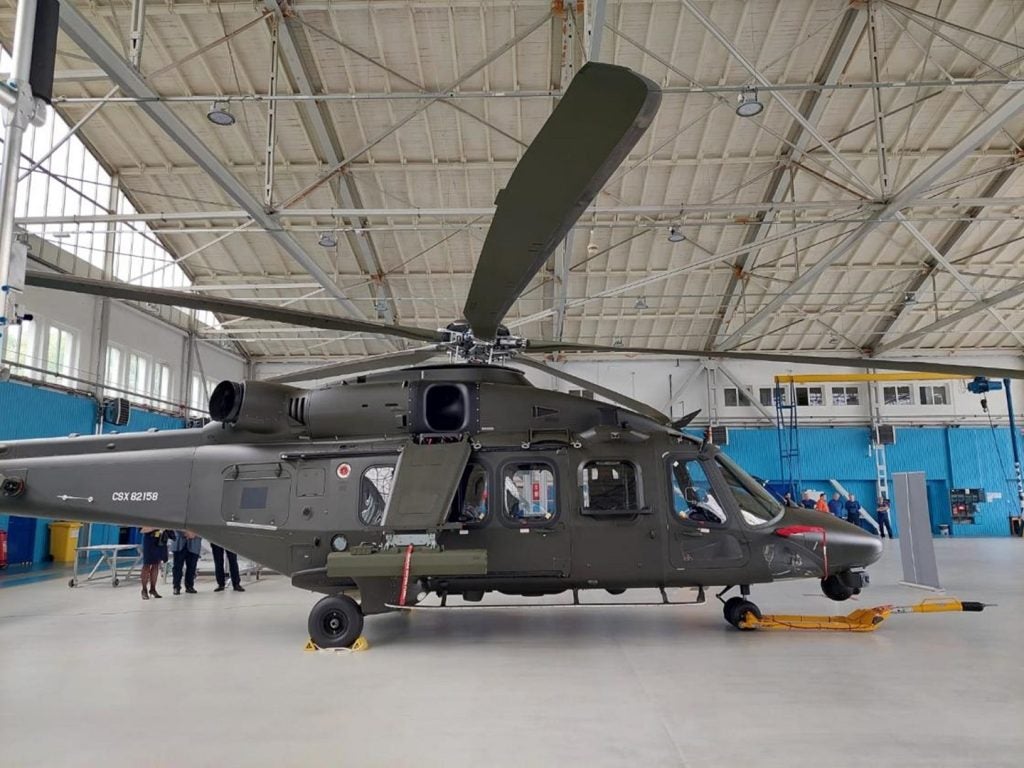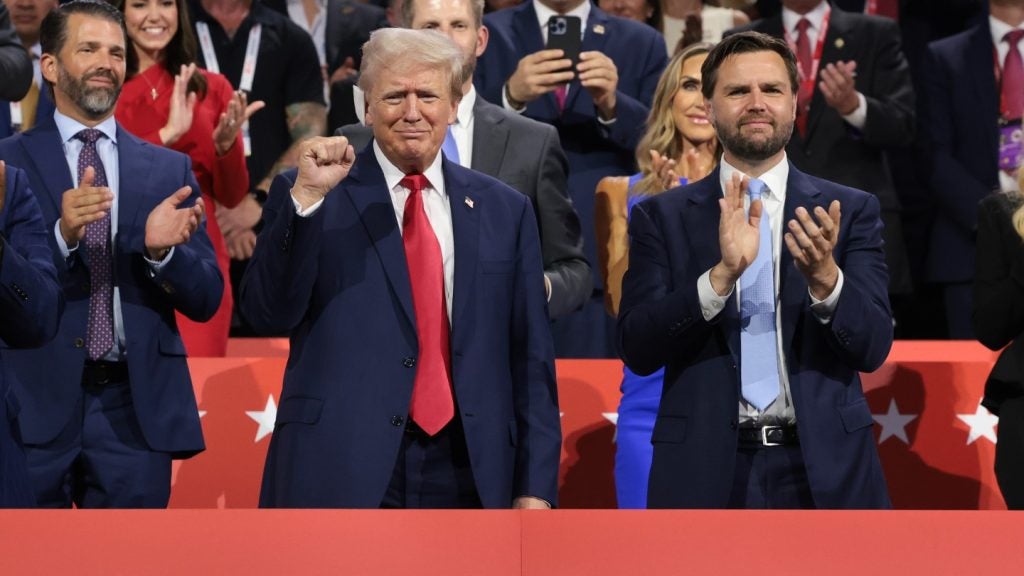As the second anniversary of the signature of the Abraham Accords normalizing economic and diplomatic relations between Israel and the Gulf states of Bahrain and the United Arab Emirates, shared concerns over the growing geopolitical belligerence of the Iranian government’s foreign policy continues to provide the catalyst for increased cooperation within the defense sector. Indeed, since the US brokered peace agreements were first signed in September 2021, the governments of Israel and the UAE in particular have dramatically ramped up collective efforts to facilitate industrial and strategic partnerships in this field, with various joint training, development and procurement initiatives having been implemented in recent months to further cement bilateral relations between the two states.
This has largely been driven by the increasing number of attacks committed by proxies of the Iranian Revolutionary Guard, with Houthi forces having been accused of three ballistic missile attacks on the UAE in January 2022. Most notably, the fact that both Israel and the UAE face challenges from a similar threat envelope, namely ballistic missiles, rockets, mortars, low-cost drones, naval mines and cyber-attacks has helped facilitate these efforts and provided political justification for security arrangements which would have previously been un-palatable for policymakers in both states. In a speech in July 2022, Israeli Defense Minister Benny Gantz revealed that Israel had sold $3 billion in arms to the Gulf nations, with 7% of Israeli military sales going to other members of the Abraham Accords in 2021, highlighting how rapidly the normalization of diplomatic and economic relations has impacted growth of the regional defense industry.
Key developments regarding bilateral Israeli-UAE security arrangements have taken place within the context of cybersecurity policy, technology transfers and joint development/procurement initiatives. With regards to the cybersecurity cooperation, the UAE has been keen to expand its capabilities with regards to intelligence, surveillance and reconnaissance (ISR) in the cyber domain. This is an area in which the Israeli defense industry has significant technical expertise, thus providing opportunities for trade and cooperation within a niche but increasingly important sector of the global defense market. The UAE became one of the primary clients for the Pegasus cyber intelligence solution developed by Israeli firm NSO Group Technologies, illustrating a growing level of strategic trust as both states gain more intimate understandings of each other’s intelligence procedures and capabilities. In February 2022, an Israeli Police Commissioner made the first ever official visit to the UAE to further promote cooperation in this field, with regional analysts arguing this could signal cooperation in the fields of homeland security and surveillance technology as well. Furthermore, the UAE has been looking to expand its deep-tech industry by investing in advanced technologies such as artificial intelligence, machine learning and cloud networking, though it has been hampered by a lack of domestic technical expertise. Observers have pointed out that strengthening ties and shared cybersecurity goals provide the optimal opportunity for Israeli technology firms to pursue joint development initiatives and generate financing from Emirati investors to further foster cooperation in this field, though concerns remain on both sides as to what extent defense industry firms can be permitted to transfer sensitive technologies to a relatively new ally.
On the subject of technology transfers, this has proven to be a particular sticking point with regards to the sale of advanced air defense systems from Israel to the UAE. Due to the growing threat posed by ballistic missiles against civilians and critical infrastructure since the outbreak of the civil war in Yemen, the UAE had been looking to procure advanced missile defense systems (MDS) and short range air defense systems (SHORAD) since around 2019. Two of the systems in consideration were the Israeli Iron Dome, which has gained reputation for reliability and cost-effectiveness since its entry into service in 2011, and the David’s Sling anti-ballistic missile defense system co-developed by Raytheon and Rafael Defense Technologies which entered service in 2017. However, it was reported in December 2021 that the Israeli government had refused an $4.5 billion offer by the UAE to purchase both systems due to concerns critical technology could be transferred to hostile third parties. Consequently, in January 2022 the UAE signed a contract worth an estimated $3.5 billion to procure Cheongung II KM surface-to-air-missiles (SAM) produced by South Korean firm Hanwha Defense, provoking some Israeli military analysts to decry the missed opportunity for further rapprochement and consolidation of both nations’ shared security interests. Then, following a series of ballistic missile attacks in January doing a visit to the UAE by Israeli President Isaac Herzog, reports indicated that the Israeli Ministry of Defense may be reconsidering the Iron Dome embargo, and in July of this year the Israeli government announced that they would be providing the UAE with ‘air defense assistance’ within the context of a US brokered regional air defense partnership, reopening the possibility for the sale of Israeli MDS technology in the near future. The Israeli government also announced that it would be supplying Bahrain with unmanned aerial systems (UAS) and Counter-UAS (C-UAS) technology over the coming year, though the specifics of which systems this would consist of have yet to be unveiled.
In order to overcome the challenges posed by the transfer of sensitive military equipment, Israel and its Gulf state counterparts are increasingly exploring opportunities for cooperation and joint development across their respective defense industries. In addition to the aforementioned efforts to strengthen cooperation in the field of bleeding-edge [DM1] IT, there are also initiatives to jointly develop and procure advanced multi-role unmanned surface vessels for the military and commercial markets. In a historic agreement first outlined in March 2021 before being formalized later that November during the Dubai Airshow, Israel Aerospace Industries (IAI) and UAE defense conglomerate EDGE Group announced a joint project to design and produce unmanned surface vessels (USV) capable of operating semi- or fully-autonomously to carry out anti-submarine warfare, minesweeping, ISR operations and even be used as a launch platform for additional UAS platforms. This program arose from the shared concerns over Iran’s repeated targeting of energy shipping routes in the region, causing economic and political turmoil which continues to impact geopolitical stability in the region. Abu Dhabi Ship Building (ADSB) will be overseeing platform design as well as the integration of control systems, while IAI leading the development of the platform’s autonomous control systems and mission payloads. Though no information as to initial investment capital or delivery dates has been unveiled, the companies have also stated their intention to market the USVs for commercial purposes such as oil and gas exploration, highlighting the multi-faceted benefits of the first joint defense program between Abraham Accord signatories Israel and the UAE. In conclusion, investors and key players in the Middle-Eastern defense market would be wise to take note of the opportunities for rapid growth and investment as nations throughout the Middle-East continue to pursue the normalization of diplomatic and economic relations with Israel.











Related Company Profiles
Israel Aerospace Industries Ltd
Abu Dhabi Ship Building PJSC